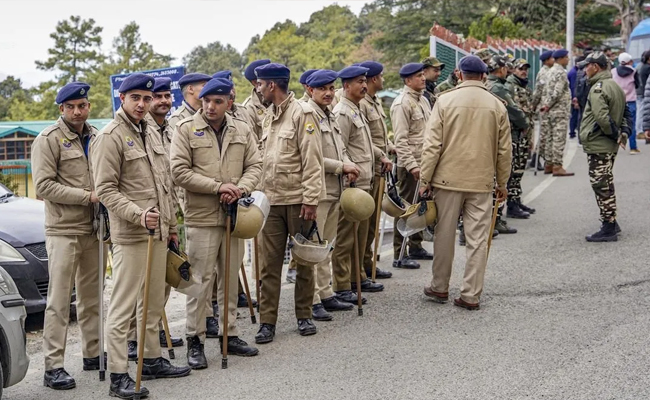Bengaluru, June 29 (PTI): An unidentified woman’s body, allegedly stuffed into a sack and dumped in a garbage truck, was found, police said on Sunday.
The body was discovered under the Chennammanakere Achukattu Police Station limits. The deceased is believed to be between 30 and 35 years old.
Police said the body was tied up and stuffed into a sack, likely dumped in the garbage truck sometime between Saturday night and early Sunday.
Based on nearby CCTV footage, police suspect the body may have been transported to the spot in an auto-rickshaw.
A resident, who came to dispose of garbage, grew suspicious on noticing the sack and alerted the police in the early hours of Sunday. Police personnel rushed to the spot and recovered the body.
A murder case has been registered, and an investigation is underway to identify those involved and ascertain the motive.
Preliminary findings suggest death due to smothering, but the exact cause and whether there was any sexual assault will be confirmed after investigation and postmortem, police added.
Let the Truth be known. If you read VB and like VB, please be a VB Supporter and Help us deliver the Truth to one and all.
Ranchi (PTI): The body of a migrant worker from Jharkhand’s Giridih district killed in Saudi Arabia in October last year has arrived at Ranchi Airport, but his family refused to accept it over pending compensation, officials said.
Shikha Lakra, team leader of the state migrant control cell, told PTI that, before taking the body of Vijay Kumar Mahato, the family is demanding compensation from the private company where he used to work in the Arab country.
Mahato was killed in an alleged crossfire between the police and criminals.
“Since it was a bullet injury case, the matter is before a court in Jeddah. The final compensation may depend on the court’s decision,” Lakra said.
“The Indian Embassy informed us about the body’s arrival, and coordination was done with district authorities. Our role is limited to coordination in cases involving overseas employers and foreign jurisdiction,” she added.
Giridih Deputy Commissioner Ram Niwas Yadav said the authorities will try to convince the family to perform the last rites.
“We have already sanctioned Rs 5 lakh under the government scheme for migrant’s deaths abroad. The compensation payment might take some time,” he said.
The body is currently at the mortuary of Rajendra Institute of Medical Sciences (RIMS) in Ranchi.
The Family members said they will only accept it if the company provides written assurance regarding compensation. “Without that assurance, we will not receive the body,” said Ram Prasad Mahato, the deceased’s brother-in-law.
Mahato, a native of Dudhpaniya village in Madh Gopali panchayat under Dumri block, was employed as a tower line fitter. His family said he was struck by a bullet during a gunfight between local police and an extortion gang and later succumbed to his injuries.
Social activist Sikander Ali said Mahato is survived by his wife, two young sons aged five and three, and elderly parents.





